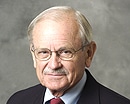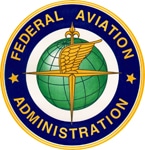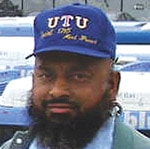 By Dr. Norman K. Brown
By Dr. Norman K. Brown
UTU Medical Consultant
When I want to get started on a job that I have been putting off, I eat a few chocolate chip cookies (think sugar), and my enthusiasm picks right up and I am on my way.
Unfortunately, there is a downside to our easy access to energy-packed food – sugars.
If we eat more sugars (think calories) than we burn up in a day, our bodies, being good stewards, turn this spare energy into fat. When we continue this, day-after-day, excess fat can make us vulnerable to many medical conditions, such as high blood pressure, diabetes, heart attacks and liver ailments.
Please note that I say sugars, not just sugar, since there are many sugars, and newer information indicates which ones we eat may make a difference.
Table sugar contains both fructose and glucose. Some believe that high fructose corn syrup, a relatively new product, which is added to sweeten many foods, especially sodas, is contributing to our obesity epidemic in America.
Despite the controversy about this form of sweetener, all agree that it can be sweeter than table sugar, and appears more likely to turn into fat in the liver and may not be good for us. While the jury is still out, please consider limiting foods containing this additive.
Our ancestors took in their sugars, including some fructose, through sweet fruits, such as berries, that also contain a lot of fiber. The mixed in fiber slows the sudden surge of sugars into our bloodstreams, such as may occur after a soft drink, and many experts believe the slowing is beneficial. Turning that idea around says that sugar, without fiber, is less healthy for us.
Sugar substitutes are now very available in the form of saccharine, aspartame (Equal), sucralose (Splenda) and Stevia. Studies have been inconclusive as to whether each is totally safe, but if one helps you to keep down your sweet intake, do consider using it in small quantities.
The bottom line is that each of us should work hard to keep our calorie intake in balance with our calorie expenditure so we are not carrying much excess fat.
The bathroom scale and our waistlines are the best monitors of how we are doing. Reading labels on packaged foods about sugar content also can help.
Fructose in processed foods appears to be especially worrisome. While I believe we will one day learn which of us can or should eat what foods to our best benefit, I personally have found that a diet high in protein and lower in carbohydrates and fat helps me most in keeping my own weight down while still having the energy to pick on myself and UTU members about our eating habits.

 WASHINGTON — The Federal Aviation Administration (FAA) has announced new rules aimed at preventing dangerous fatigue among passenger aircraft pilots. The rules do not affect all-cargo aircraft pilots.
WASHINGTON — The Federal Aviation Administration (FAA) has announced new rules aimed at preventing dangerous fatigue among passenger aircraft pilots. The rules do not affect all-cargo aircraft pilots. Local 1957 member Caleb Butler set up a benefit account in Stacy’s name at Community Bank to aid Rieger’s family. Community Bank is located at 645 North 5th St., Silsbee, TX 77656-4040. The phone is (409) 386-6058; the account number is 51036468.
Local 1957 member Caleb Butler set up a benefit account in Stacy’s name at Community Bank to aid Rieger’s family. Community Bank is located at 645 North 5th St., Silsbee, TX 77656-4040. The phone is (409) 386-6058; the account number is 51036468.